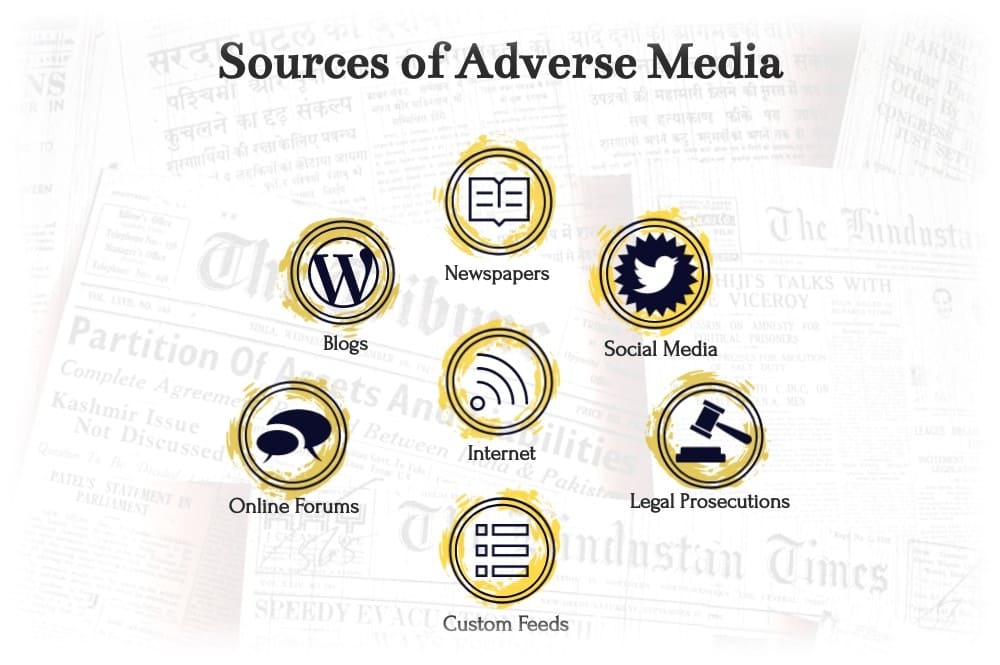Adverse media checks, also known as negative news checks, is the process of screening a financial institution’s client (individual or corporate) against news articles, legal prosecution or similar content that may affect the customer’s final risk by revealing their involvement in money laundering, terrorism, fraud, tax evasion, or other types of crimes.

The result of the analysis can lead to the non-acceptance of the customer, the increase of a client’s risk, the filing of an SAR, or the termination of the relationship with the client.
What is the legislation behind adverse media?
In the international sphere, the Financial Action Task Force (FATF) in its Risk-Based Approach Guidance identifies adverse media searches as a part of Enhanced Due Diligence (EDD) practice concerning individual customer risk assessment.The Wolfsberg Group puts forth a similar concept in its Correspondent Banking Due Diligence Questionnaires, making negative news screening a part of the risk-based approach for sectors or groups that pose a higher risk to financial institutions such as correspondent banking and politically exposed persons (PEPs).

In the United States, FinCEN’s final rule commentary of its Customer Due Diligence Requirements for Financial Institutions states that financial institutions should develop risk-based procedures to determine if additional screening, particularly “negative media search programs,” would be appropriate.
What sources are used for negative news screening?
Negative news can be derived for a variety of official news sources or unstructured data sources such as social media, internet forums, or databases.However, it’s always important to check the quality, credibility, and the independence of the source you are using so as to not incur the risk of utilizing biased, partial, or fake news.
News articles not only provide elements on a single individual or company but may also present the names of direct or indirect connections towards other individuals or businesses that may pose a threat to the financial institution.







This article is clear, professional and interesting. It really stimulates me to know more about ways to protect individual reputation even if it is not directly linked to financial analysis . I thank dr. Siggia for this important hint!
This article is full of informative. I can relate very well. Because I'm part of same profile. With one of blue chip company. For eg: Adverse Media Screening, Sanctions Screening, Financial Crimes etc.